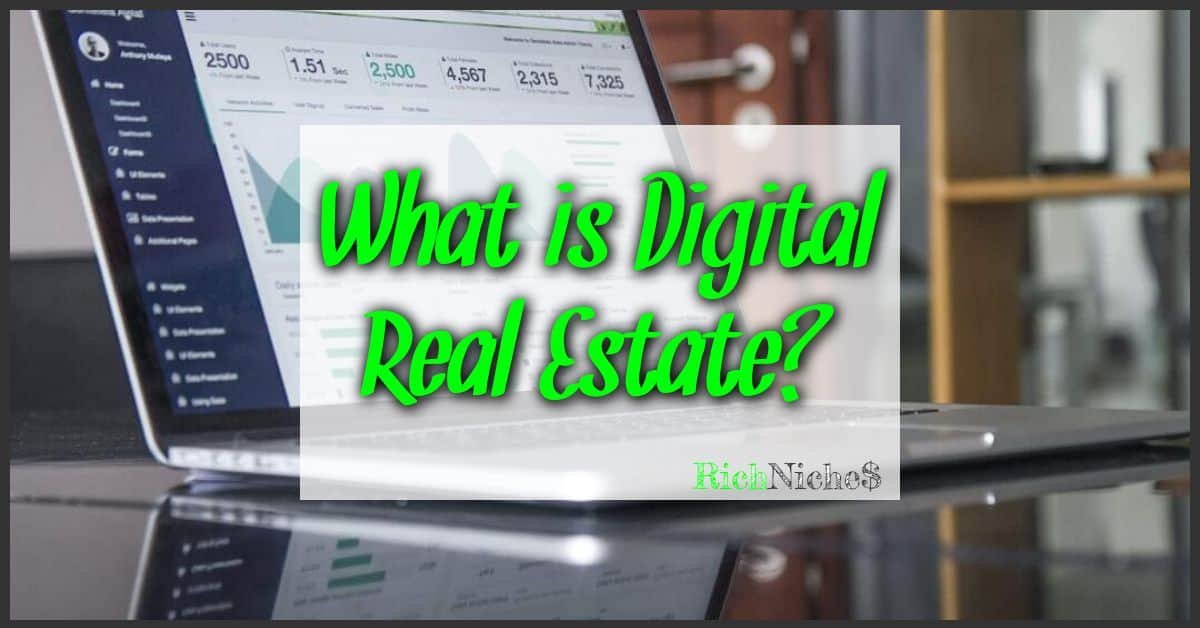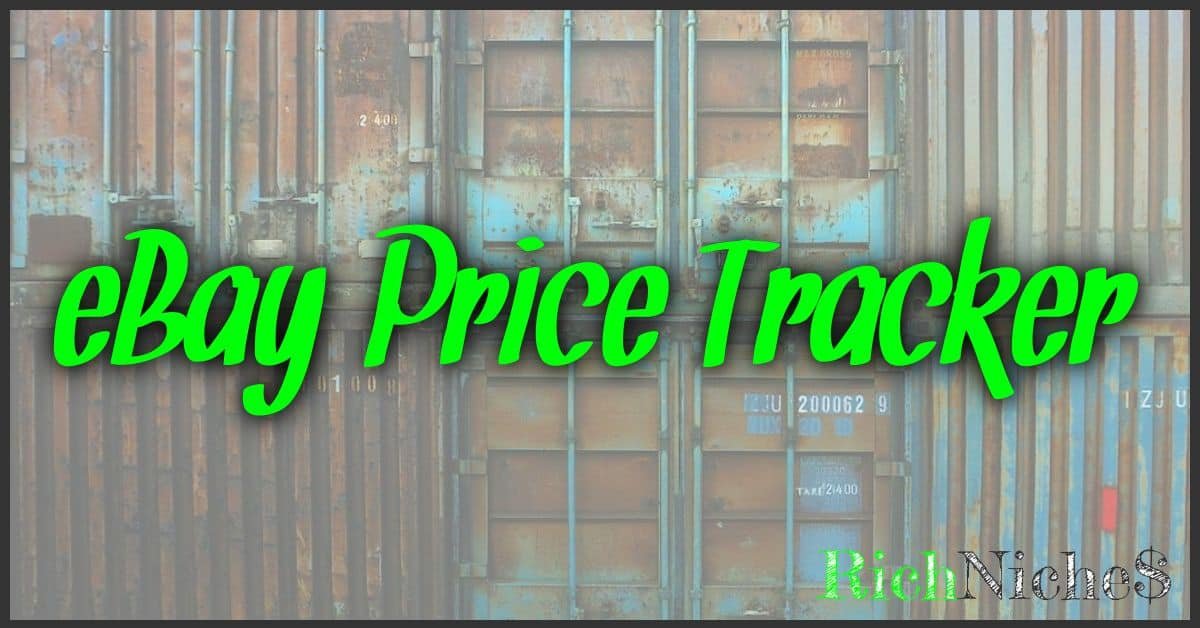Navigating the world of investment can be an intimidating endeavor, especially with the emergence of digital real estate. But don’t let this new frontier scare you off; instead, see it as a fresh opportunity to diversify your portfolio and make waves in an innovative market.

Digital real estate is essentially virtual property—online space that you own or control. This could range from a website or domain name to social media accounts or even digital billboards. Just like physical real estate, these spaces can be bought, sold, leased out—or improved upon for increased value.
In today’s digital age where nearly everything has moved online, owning pieces of this virtual landscape could potentially provide significant return on investment (ROI). It’s time to take a closer look at what digital real estate is all about: how it works, its potential benefits and pitfalls—and most importantly—how you can get involved.
Understanding Digital Real Estate
The internet is a bustling marketplace, and digital real estate plays a significant role in this new era of commerce. But what exactly is digital real estate? Just like physical assets, it’s the ownership of space on the internet. This can include websites, domain names, social media accounts, or eCommerce platforms.
Let’s delve deeper. When you own a website that generates traffic and revenue, you’re holding onto some valuable digital property. It’s comparable to owning a rental property that brings in regular income.
You might be asking: why should I care about digital real estate? Well, it’s all about potential growth and profitability:
- Expansive reach: Your digital properties can be accessed from anywhere around the globe.
- Low startup costs: Compared to traditional real estate investments which often require large initial capital outlays.
- Passive income opportunities: Successful websites or online businesses can generate consistent revenue streams.
These points are just the tip of the iceberg when it comes to understanding digital real estate. In essence, your virtual properties hold immense potential for scalability and high ROI if managed properly.
Now let’s look at some numbers representing its value:
| Year | Number of Websites Worldwide (in billions) |
|---|---|
| 2016 | 1 |
| 2017 | 1.8 |
| 2018 | 2 |
| 2019 | 2.3 |
These figures demonstrate not only how rapidly this sector has grown but also hint at its future potential.
Overall, digital real estate is an exciting frontier with countless opportunities waiting for those willing to explore them. It’s more than just owning domain names; it includes building communities, establishing brands online and creating wealth through various forms of online content monetization strategies.
It’s time for you to consider getting in on this crucial aspect of today’s economy – after all, every click could equate to your next big investment payoff!
The Evolution of Real Estate: From Physical to Digital
The world as you know it is transforming right before your eyes. Real estate, a sector that was once solely grounded in physical properties, has shifted dramatically towards the digital realm.
Let’s take a walk down memory lane and see just how much things have changed.
In the past, real estate investment was all about location, location, location. You’d scout out a promising neighborhood or city and put money into property with potential for growth. It wasn’t uncommon to spend countless hours viewing properties, negotiating deals, and coordinating with realtors.
But now? Things are rather different. Enter digital real estate – an exciting new frontier where virtual space is bought, sold, and traded much like its physical counterpart.
Digital real estate can include anything from domain names to social media accounts or even virtual land in online games. Believe it or not, websites like Facebook and Twitter are considered prime ‘properties’ in this digital landscape. They’re highly sought after due to their high traffic volumes and advertising potential.
And it doesn’t stop there! Merging technology with creativity has given birth to entirely new types of digital real estate such as virtual reality (VR) spaces. Here’s how cool this gets: companies are buying up virtual plots of land within gaming platforms for advertising purposes!
Just think about it – instead of putting up billboards on freeways or bus stops, they’re popping up ads within these immersive VR environments!
As you traverse through this evolving landscape of bits and bytes replacing bricks and mortar remember one thing – change is the only constant in life…and clearly also in real estate!
How Does Digital Real Estate Work?
You might be wondering, just how does digital real estate function? Well, it’s not as complex as you might think. Digital real estate works similarly to physical real estate. It consists of buying, selling, and investing in virtual property rights. These can include domain names, websites, or even parts of a virtual world.
To start off with domain names, these are the addresses you type into your web browser to visit a website. Just like physical land plots are unique, each domain name is one-of-a-kind too. If someone owns ‘example.com’, no one else can own that same address unless they sell it.
Next up we have websites. Think of them as buildings constructed on the land (domain). They come in various shapes and sizes – blogs, e-commerce stores, news sites and more. The value of these websites depends largely on factors such as traffic volume, revenue generated and potential for growth.
Lastly let’s talk about parts of a virtual world; this concept has been gaining traction lately thanks to advancements in technology like augmented reality (AR) and virtual reality (VR). Companies are creating entire virtual worlds where you can buy parcels of land! In these spaces you’re able to create anything from a small house to an expansive business park.
Here’s a brief rundown:
| Type | Description |
|---|---|
| Domain Names | Unique web addresses |
| Websites | Built on domains with varying values |
| Virtual World Parcels | Parts of created online universes |
Remember though: owning digital real estate isn’t simply about holding onto a piece of online territory. It’s also about what you do with that territory – building something valuable that will attract visitors or customers. Therein lies the potential for profitability!
Types of Digital Real Estate You Can Own
Ever wondered what types of digital real estate you could own? Well, it’s a vast landscape with different categories. Let’s dive into some of the primary types that you can consider investing in.
Websites are one form of digital real estate. They’re like your modern storefront—online platforms where people come to peruse your products or services. Whether it’s an ecommerce site, a blog, or a news portal, owning a website is akin to having a piece of online property.
Next up are domain names. Think of these as the addresses for websites on the internet. Some domain names can be extremely valuable due to their simplicity or relevance to popular industries and topics.
Then there are social media accounts and pages. While not traditionally viewed as “real estate,” they’ve become integral parts in today’s digital ecosystem. With enough followers and engagement, these profiles can generate significant income from advertising and partnerships.
Lastly, we have apps, which are similar to websites but typically offer more interactive experiences for users on mobile devices.
Here’s a quick rundown:
| Type | Description |
|---|---|
| Websites | Online platforms showcasing products/services |
| Domain Names | Addresses for websites; can be highly valuable |
| Social Media Accounts/Pages | Generate income through ads & partnerships |
| Apps | Interactive experiences for mobile device users |
Remember, each type comes with its own set of challenges and benefits. So before jumping in headfirst, take time to research about each type thoroughly—and find out which one suits your skills and interests best!
Investing in Digital Real Estate: What You Need to Know
Stepping into the world of digital real estate? It’s natural to have questions. So, let’s dive into what you need to know about this booming online investment opportunity.
Digital real estate, at its core, is buying and selling virtual properties. These could be websites, domain names, or even virtual land within online games like Decentraland or Cryptovoxels. The guiding principle remains the same as regular real estate – buy low, enhance if possible, and sell high.
But how do you value digital property? Here are a few factors:
- Traffic: A website with high traffic is akin to a shop in a bustling high street.
- Income: If the site already makes money through ads or product sales.
- Potential for Monetization: Even without current income, potential for future earnings heightens value.
Here’s an example for better clarity:
| Websites | Traffic | Income | Potential for Monetization |
|---|---|---|---|
| www.digitalproperty1.com | High | Yes | High |
| www.digitalproperty2.com | Low | No | Medium |
Remember that like any investment, there’s always risk involved. But the beauty of investing in digital real estate lies in its flexibility – it doesn’t require physical presence and allows you to participate from anywhere around the globe!
So when should you invest?
It depends on your financial goals and risk tolerance. However, many experts believe that now’s a good time due to growing internet usage rates worldwide.
Finally, remember that just like traditional property markets fluctuate based on supply-and-demand dynamics; so too does digital real estate. Staying updated on trends will give you an edge over others!
In all things investment-related – research thoroughly before diving headfirst into anything! And don’t forget – keep learning! The more knowledge you gather about this exciting new frontier of commerce called digital real estate, the better equipped you’ll be to maximize your ROI!
Building Your Virtual Properties: Websites, Domains, and More
Embarking on the journey of digital real estate? You’re probably curious about where to start. Let’s delve into what you need in your arsenal: websites, domains, and a lot more.
First off, websites are your virtual storefronts. They’re crucial for establishing an online presence. Just like brick-and-mortar properties, the location matters here too! The address of your website is called a domain name. It’s this ‘virtual address’ that people use to find you on the internet.
Think about domains as unique identifiers – no two can be exactly alike. This uniqueness makes them valuable assets in digital real estate. In fact, some premium domain names sell for millions of dollars!
Here’s a markdown table showing top 5 most expensive domain names ever sold:
| Domain Name | Sale Price (USD) |
|---|---|
| Business.com | $345 million |
| LasVegas.com | $90 million |
| CarInsurance.com | $49.7 million |
| Insurance.com | $35.6 million |
| VacationRentals.com | $35 million |
Next up we have web hosting – it’s akin to building materials in physical real estate. A reliable web host ensures your site stays accessible around the clock.
Then there are website builders – tools which help you design and construct your digital property without needing advanced technical skills.
Finally, don’t overlook SEO optimization – it’s like prime location in traditional real estate terms – helping attract more visitors or ‘traffic’ to your site.
Remember these key elements:
- Securing a good domain name
- Investing in robust web hosting
- Selecting an easy-to-use website builder
- Prioritizing SEO optimization
The world of digital real estate may seem overwhelming at first glance but remember – every expert was once a beginner! As long as you’ve got the basics down pat – websites, domains and beyond – you’re well on your way to creating successful virtual properties.
Risks and Rewards of the Digital Property Market
Venturing into the digital real estate world, you’ll encounter both risks and rewards. The virtual property market can offer exciting opportunities, yet it’s also fraught with potential pitfalls.
On the reward side, digital properties have become a hot commodity. With an increasing number of people spending time online, owning a piece of this virtual landscape can reap substantial returns. For instance:
- Websites generating significant traffic can earn revenue through advertising or affiliate marketing.
- Domain names that are in demand might be sold at higher prices.
- Virtual reality spaces are attracting businesses for promotional events.
Here’s a snapshot illustrating potential earnings from digital real estate:
| Type | Potential Earnings |
|---|---|
| High Traffic Website | $1,000 – $10,000 per month |
| In-Demand Domain Name | Up to $30,000 per sale |
| Promoted VR Space | $500 – $5,000 per event |
However, there is no guaranteed profit in digital real estate. Just like physical real estate investments require due diligence and savvy decision-making skills to succeed.
Now let’s talk about risks. Investing in any kind of property isn’t without its hazards and investing in digital properties is no exception:
- A website’s value could plummet if its traffic decreases suddenly.
- You may overpay for domain names without realizing their true market value.
- Technological glitches could disrupt your virtual reality space.
So while there are clear benefits to investing in the digital property market, it’s important not to overlook the associated risks. To navigate these waters successfully and make informed decisions about your investments – always do your due diligence before diving headfirst into this enticing but unpredictable market!
Case Studies: Successful Digital Property Purchases
Looking into the world of digital real estate, you’ll find an array of success stories that’ll catch your attention. Here are a few compelling cases to illustrate how lucrative this emerging market can be.
Perhaps one of the most notable successes is Decentraland. This virtual world allows users to buy, sell, and build upon their own parcels of land. In 2020, an investor purchased a plot for around $80K — a hefty sum by any standard. Just months later, they sold it for over $500K! That’s more than six times their initial investment in less than a year.
| Purchase Price | Sale Price | Profit |
|---|---|---|
| $80,000 | $500,000 | $420,000 |
Another example comes from the popular game Axie Infinity. Although it’s not strictly real estate, players invest in ‘plots’ by buying digital pets known as Axies. A particularly rare Axie was bought for just under $300 and later auctioned off for an astounding $130K.
| Purchase Price | Sale Price | Profit |
|---|
- $300 | *$130,000 | *$129,700 |
And let’s not forget about Cryptovoxels, another thriving metaverse where people purchase plots of land to create unique experiences or advertisements. One user bought their plot for approximately $800 only to resell it at over $20K!
These numbers may seem surreal but they’re very much grounded in reality:
- Decentraland: From $80K to over $500K
- Axie Infinity: From less than $300 to over $130K
- Cryptovoxels: From roughly $800 to more than $20K
As these case studies show, digital property purchases can yield significant returns on investment if done right. But remember — like all investments there are risks involved too! So always do your homework before diving headfirst into the realm of digital real estate.
Getting Started in the World of Virtual Landownership
Diving into the realm of digital real estate may seem intimidating at first, but with a bit of guidance and plenty of research, you’ll soon find your footing. Just like traditional real estate, virtual land ownership involves buying, selling, and investing in properties – only this time, they’re located in online spaces called ‘metaverses’.
Your first step is to understand what a metaverse is. It’s an online world where users can interact with each other and their environment in real-time. These virtual worlds are hosts to various activities such as games, businesses, social interactions, and more.
Next up is identifying your platform. Different metaverses offer different types of digital real estate opportunities. Some popular platforms include Decentraland, Cryptovoxels, and Somnium Space:
- Decentraland: Known for its open standards allowing anyone to build on their land.
- Cryptovoxels: Famous for its simplicity and ease-of-use,
- Somnium Space: Notable for offering a full-scale virtual reality experience.
Once you’ve chosen a platform that aligns with your goals (or perhaps even multiple platforms), it’s time to do some property hunting.
Investing wisely requires understanding both the current market value of properties and potential future developments that could impact these values. Remember not all plots are created equal; location matters just as much as it does in physical real estate – proximity to high traffic areas or landmarks can significantly boost value.
It’s also worth mentioning that many investors have found success by speculating on new projects before they gain widespread recognition or popularity – sort of like purchasing land in an undeveloped area expecting urban growth down the line.
Lastly but importantly: be patient! Success won’t come overnight. It takes time to learn the ropes and make wise investments that yield significant returns. Keep tabs on market trends, stay adaptive and always be ready for change because just like any investment venture – there’s risk involved!
In essence: do your homework! The more informed you are about this exciting frontier of investment opportunity; the better positioned you’ll be to stake your claim within it.
Wrapping Up: The Future of Digital Real Estate
Looking ahead, it’s clear that the landscape of digital real estate is poised for significant growth. You might be wondering what this could mean for you and your investments. Well, as technology continues to evolve, so does the potential for more immersive online experiences. Virtual reality and augmented reality technologies are becoming increasingly prevalent in our everyday lives. These advancements will likely drive further interest in digital real estate.
Just like physical real estate, location matters even in the virtual world. Prime locations within popular virtual platforms can command higher prices. Think of virtual storefronts on busy streets or exclusive homes in prestigious online neighborhoods.
The future isn’t just about buying and selling though. As digital spaces become more integrated into our lives, we’ll also see a rise in leasing out virtual properties – much like renting out an Airbnb.
Here’s a quick look at some predicted trends:
- Increased integration with VR/AR: Virtual and augmented reality usage is projected to grow exponentially over the next few years.
- More accessible investment opportunities: With fractional ownership models emerging, you don’t have to be mega-rich to invest in prime online locations.
- Greater diversity of use cases: Expect everything from e-commerce stores and art galleries to music festivals and social gatherings taking place on digital properties.
So what’s next? It’s up to you! Digital real estate offers a new frontier full of opportunities – whether you’re a seasoned investor looking for fresh ventures or someone seeking innovative ways to create passive income streams. Just remember, as with any investment opportunity, there are risks involved too – so do your homework before jumping in!
Embrace the future and explore the possibilities that digital real estate has to offer!




